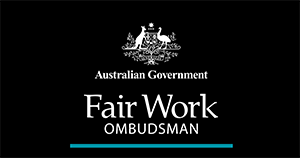




3 June 2019 - Original Release, Click Here
Fair Work Ombudsman Sandra Parker today announced the regulator’s priorities for the year ahead, which will direct the agency’s compliance work and enforcement outcomes.
In an address to the 2019 Annual National Policy Influence Reform Conference in Canberra, Ms Parker outlined a stronger approach to enforcement.
“While it can be difficult as a regulator to find the right balance between using enforcement tools and getting a timely outcome, I am conscious that Parliament has given us increased powers and more resources, so it’s on us to send a strong message of deterrence to would-be lawbreakers.”
“The Prime Minister and the new Minister for Industrial Relations have also said that a priority for the Government is on law enforcement and adherence with Australia’s industrial relations laws.”
In 2019/20, the priority industries or issues the FWO will focus on are:
Ms Parker highlighted that vulnerable workers will continue to be a priority for the agency, as will matters that are of significant public interest, demonstrate a blatant disregard for the law, are of significant scale or impact on workers or the community and can test the law or use new laws.
“We will use our new powers and publicly name employers who break the law to get the message out that it is not acceptable to underpay workers or deprive them of their entitlements. Employers who do this will get caught,” Ms Parker said.
“If an employee comes to us and says they haven’t been paid and their employer is giving them the run around, we have the power to compel records. If these records are deficient in some way, we can issue a penalty infringement notice, and if an Inspector forms a reasonable belief that there’s been an underpayment, the Inspector can issue a compliance notice.”
Ms Parker flagged a bigger role for compliance notices to address underpayments, breaches of awards and the National Employment Standards.
“Where an employer is issued with a compliance notice, the onus will be on them to get their house in order. We are going to simplify these notices so it’s easy for employers to understand what they need to do, but if they don’t comply with the terms of our compliance notice, the Fair Work Ombudsman won’t resile from taking them to court to seek penalties,” Ms Parker said.
Ms Parker confirmed that the regulator’s Compliance and Enforcement Policy will be updated to reflect this new approach.
“Now I think the bar should be higher again for larger, high-profile businesses that self-report non-compliance to us, which has been occurring quite frequently of late. This might be the result of better corporate governance arrangements following the Banking Royal Commission, and while this is a good thing, the law still needs to be upheld,” Ms Parker said.
“Our default position now is that an enforceable undertaking with the FWO will be required, as a minimum, and those enforceable undertakings will require the employer to meet the cost of getting their underpayments verified by experts contracted to the FWO, so that the burden of calculating what is owed is not put onto the taxpayer.”
“Employers that self-report should also expect to make a contrition payment reflecting the seriousness of their contravening conduct, because it is simply not acceptable for businesses to throw their hands up when they’ve been underpaying workers and expect to move on without consequences once the back pay is in the workers’ accounts.”
Ms Parker highlighted that the flow on effect of requiring employers to take responsibility is directing finite resources to strategic matters or industries where the regulator wants to be extremely active.
“So if you are in one of our priority industries, operate a franchise system or employ large numbers of migrant workers, you should expect to hear from us,” Ms Parker said.